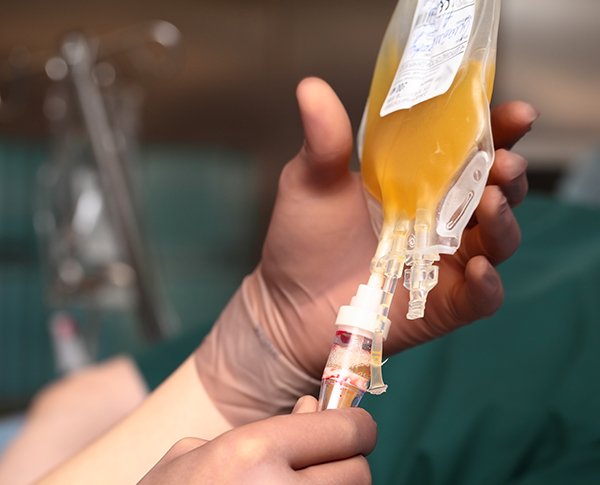UTHealth COVID-19 Research Update
 As COVID-19 continues to impact communities globally, The University of Texas Health Science Center at Houston (UTHealth) is leading a number of research initiatives exploring treatment options, the impact on mental health and well-being, the effectiveness of public health measures, and more. At the forefront of the research coordination is Charles C. Miller, PhD, associate dean for hospital quality initiatives, director of the Center for Clinical Research and Evidence-Based Medicine, professor and vice chair for research in the Department of Cardiothoracic and Vascular Surgery, and associate vice president for clinical research and healthcare quality, who is leading the UTHealth COVID-19 research task force.
As COVID-19 continues to impact communities globally, The University of Texas Health Science Center at Houston (UTHealth) is leading a number of research initiatives exploring treatment options, the impact on mental health and well-being, the effectiveness of public health measures, and more. At the forefront of the research coordination is Charles C. Miller, PhD, associate dean for hospital quality initiatives, director of the Center for Clinical Research and Evidence-Based Medicine, professor and vice chair for research in the Department of Cardiothoracic and Vascular Surgery, and associate vice president for clinical research and healthcare quality, who is leading the UTHealth COVID-19 research task force.
“We will continue to see more population-level data coming from The School of Public Health [at UTHealth] about the effectiveness of public health measures, or lack thereof,” says Miller. There are currently several active clinical trials, registry and observational studies being conducted at UTHealth reviewing the impact, effects, and prevention of COVID-19.
Many of these research initiatives surround convalescent plasma and a variety of immune-system regulating drugs. “Convalescent plasma is plasma donated by COVID-19 survivors who have recovered and have antibodies, where immune-modulators hope to reduce the over-reaction of the immune system that sometimes occurs. Early evidence on convalescent plasma suggests that it may reduce the severity of the disease and time to recover; the studies of immune-modulators are not very far along yet,” says Miller. Individual research efforts surrounding access, efficacy, donor supply, and indications for these therapies continue to rise. Progress on vaccines are in the early stages of development, though, “are moving pretty fast and there are hopeful signs. This is particularly remarkable in that the virus has only been circulating for about six months,” he says.
Social and behavioral impacts of the virus are also a common theme within the growing list of research efforts at UTHealth. In addition to reliance and usage of technology, UTHealth researchers are assessing the wide range of mental health topics in response to the outbreak. Government mandates such as social distancing and quarantining have brought on several negative repercussions on mental wellness since the start of the pandemic.
A full list of UTHealth research efforts are available on the UTHeatlh website: https://www.uth.edu/news/research, along with COVID-19-related projects, which are available for access to UTHealth employees on: https://inside.uth.edu/evpara/covid-19/covid-19-research. For national initiatives, The Journal of American Medical Association includes several articles regarding the virus and is updated daily.
Be sure to follow along in the coming months as both the virus and research developments continue. Resources are readily available through the UTHealth and affiliate websites with Memorial Hermann and Harris County Public Health.
-Caliann Ferguson